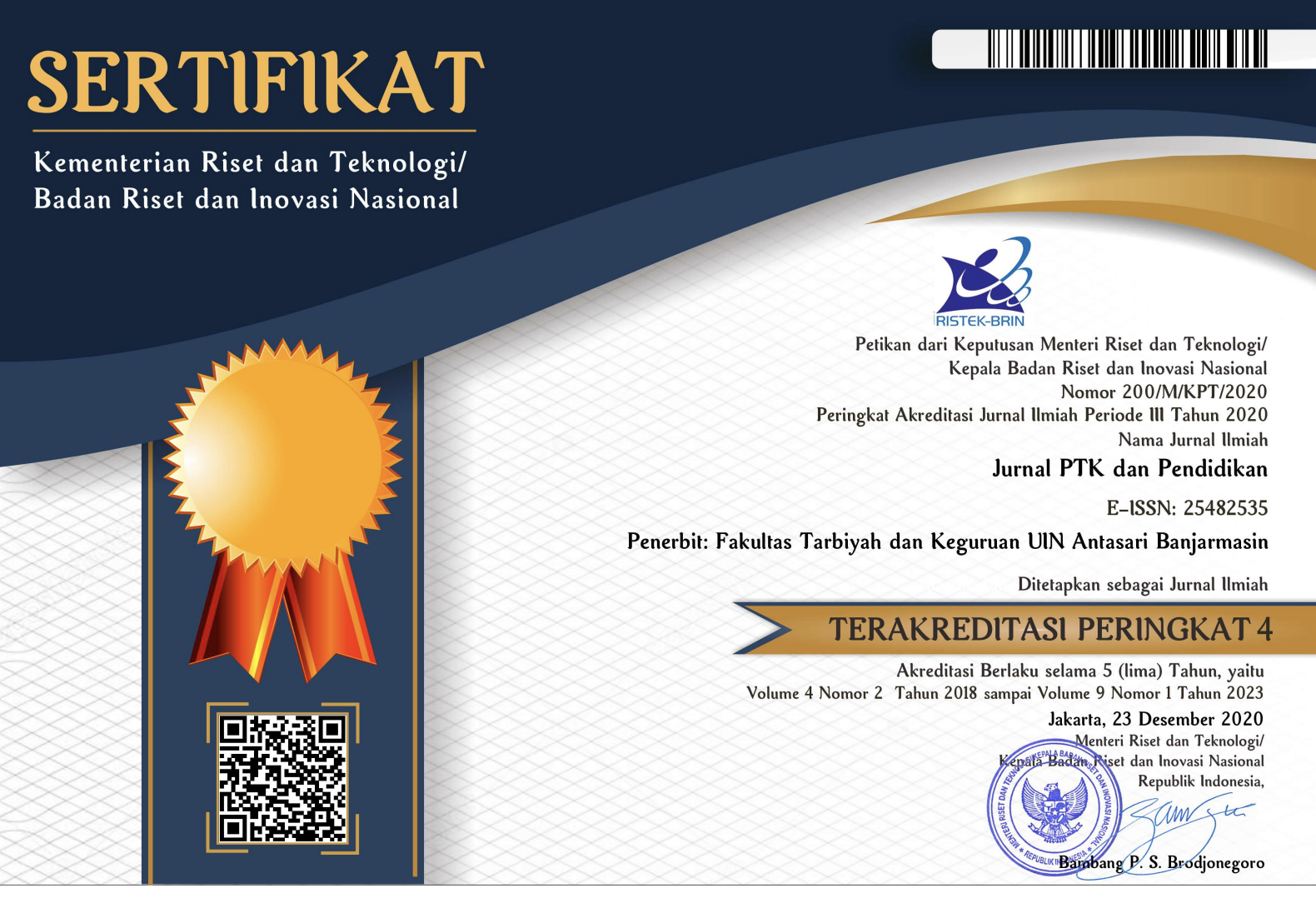IMPROVING STORYTELLING SKILLS IN SKI LESSONS FOR WALISONGO MATERIAL WITH THE ON BOARD PICTURE STORIES STRATEGY FOR MI DARWATA STUDENTS
DOI:
https://doi.org/10.18592/ptk.v9i2.8056Abstract
History of Islamic Culture is a history lesson in which history lessons are often referred to as memorization lessons and are also boring. As a result, history lessons are less attractive to students. One of the solutions offered to solve this problem is the onboard picture stories learning strategy in which students learn to understand the pictures in the sequence of events and tell each picture shown. The purpose of this study was to improve students' storytelling and speaking abilities in Islamic Culturehistory lessons on walisongo material through the onboard picture stories strategy in class VI MI Darwata Padangsari Majenang in the 2022/2023 academic year. This research is a class action research where the class action research model is adapted based on the model of Kurt Lewin where the research procedure is designed with 2 cycles. The implementation begins with preparing the material, implementing the strategy on board picture stories, presenting and doing the final test of learning activities. From the results of the study it can be concluded that learning the history of Islamic culture through the on board picture stories method can improve storytelling skills in class VI MI Darwata PadangsaDownloads
Published
2024-01-06
How to Cite
Nani Nasikhatun, I. ., Suwarti, S., Purwasih, W., & Sarah, S. (2024). IMPROVING STORYTELLING SKILLS IN SKI LESSONS FOR WALISONGO MATERIAL WITH THE ON BOARD PICTURE STORIES STRATEGY FOR MI DARWATA STUDENTS. Jurnal PTK Dan Pendidikan, 9(2), 93–99. https://doi.org/10.18592/ptk.v9i2.8056
Issue
Section
Articles
License
Copyright (c) 2024 Ikhda Nani Nasikhatun

This work is licensed under a Creative Commons Attribution 4.0 International License.
- The right to publication of all journal material published on the Jurnal PTK dan Pendidikan website is held by the editorial board with the author's knowledge (moral rights remain the property of the author).
- The formal legal provisions for access to digital articles of this electronic journal are subject to the terms of the Creative Commons CC BY 4.0 DEED Attribution International (CC BY) license. This license enables reusers to distribute, remix, adapt, and build upon the material in any medium or format, so long as attribution is given to the creator. The license allows for commercial use.
- Printed and electronic published manuscripts are open access for educational, research and library purposes. In addition to these objectives, the editorial board shall not be liable for violations of copyright law.






